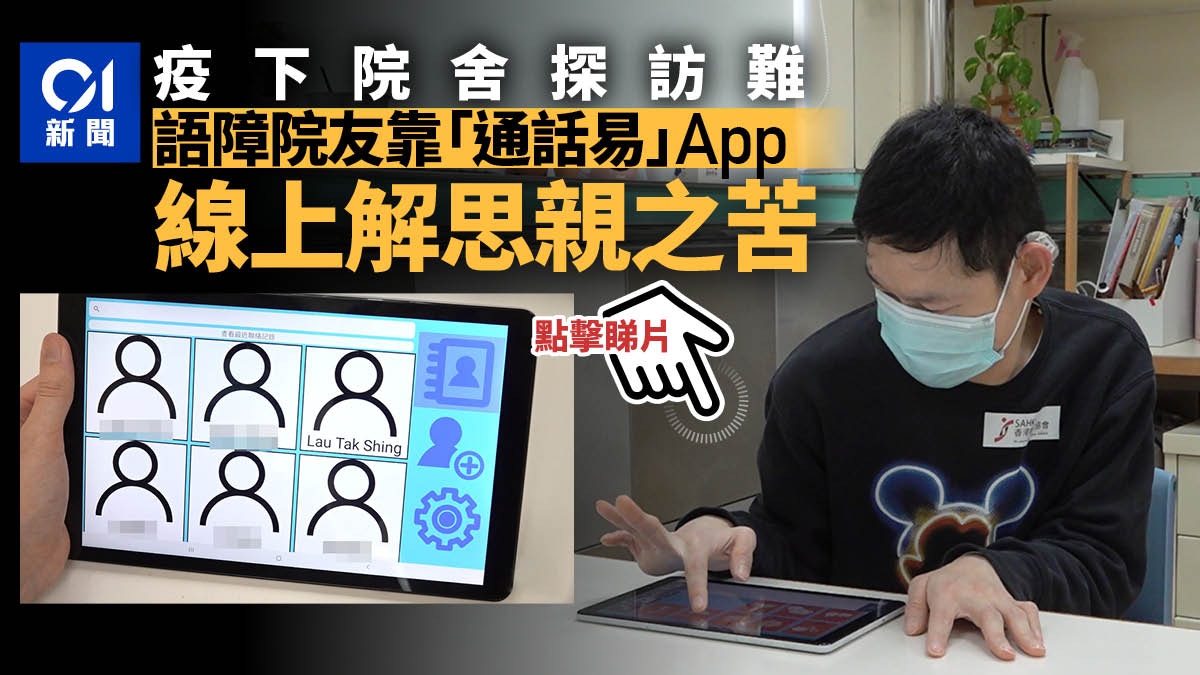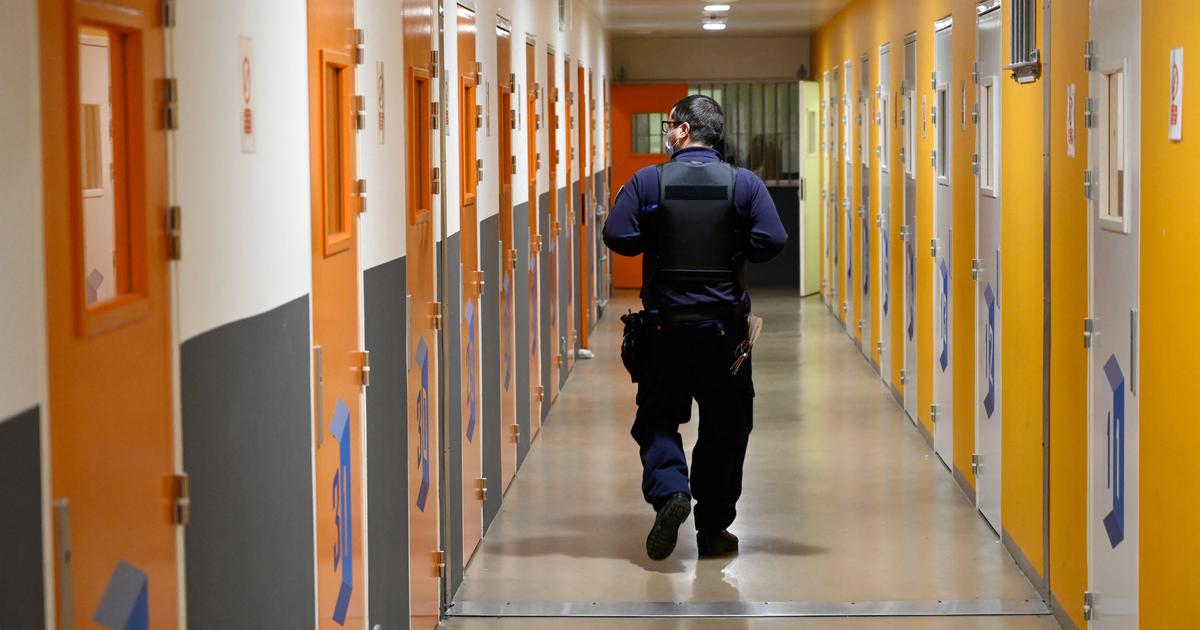The new crown pneumonia virus has been raging for two years and has not stopped, and the fifth wave of the epidemic has broken out again. It seems that the public has not been able to escape the threat of the virus.
Under the epidemic, the lives of many people have been disrupted. The elderly and disabled people living in institutions and their relatives are even more difficult to visit due to the limitations of epidemic prevention measures. How to solve the worry of missing relatives in the past two years?
In particular, residents with language barriers are more difficult to speak. How can they express their feelings?
The Hong Kong Sparkle Energy Association and the Department of Information Engineering of the Chinese University of Hong Kong jointly developed the "Easy Talk" program, which combines images, artificial intelligence and communication systems, so that residents who cannot use language and text to communicate can still communicate with each other through the program during the epidemic prevention period. family for effective online communication.
For the past six months, Deng Yongzhi, a speech therapist of the Hong Kong Shining Association, has been teaching Tak Shing to use the "Talk Easy" program.
(Photo by Cai Zhengbang)
Tak Shing is 40 years old this year, suffering from cerebral palsy, mild mental retardation and hearing impairment. He has lived in the home of the Hong Kong Shining Association for 19 years.
During the epidemic, visits to the home were suspended for a long time, and limited visits did not resume until last year. In the past two years, the number of visits Decheng has seen with his family has dropped sharply, and Decheng has difficulty speaking and cannot talk to his family on the phone.
Having lost contact with his family for a long time, Decheng inevitably became depressed.
In order to help people who cannot communicate with people through speech and writing, such as stroke patients, cerebral palsy patients, and those whose language ability is affected by disease or surgery, the Department of Information Engineering of the Chinese University of Hong Kong and the Hong Kong Bright Energy Association jointly developed "Easy Talk" In the app, users can select more than 720 images to organize sentences, and send messages with the artificial voice function, which complements the user's speaking ability and makes communication more vivid, just like a special version of Whatsapp.
Through the "Talk Easy" program, users can select more than 720 images to organize sentences to express their meaning.
(Photo by Cai Zhengbang)
Decheng can communicate with residents and order afternoon tea after studying for half a year
For the past six months, Carla Tang, a speech therapist of the Hong Kong Shining Association, has been teaching Tak Shing to use the "Talk Easy" program.
Deng Yongzhi said frankly that Decheng has a language ability, and he rarely touches electronic devices such as iPads. He does not understand the operation methods of basic electronic devices, such as button selection of images and sending messages. Therefore, he should be taught to understand image classification, different Category words and other features.
Under the careful guidance of the speech therapist, Tak Shing has made good progress in his studies. He has learned basic functions such as dialing to contact his friends, deleting wrongly selected images, and re-reading the messages he has read.
Tak Shing can now use the "Talk Easy" to communicate with other residents in a simple manner. Sometimes the staff of the residential house go out to buy afternoon tea, and Tak Shing can also choose the food he wants through "Talk Easy", which is very convenient.
Can replace the physical "communication book" to break through the space constraints
Deng Yongzhi continued to point out that in the past, most of the residents used the "communication book" to communicate, and the "communication book" is a tool similar to the physical version of "Talkyi". "Face to face" can only be used.
However, "Easy Talk" breaks through the limitation of space, especially during the epidemic period, everyone must maintain social distance. If residents use "Easy Talk", they can contact residents and relatives and friends even if they stay in their rooms.
Deng Yongzhi hopes that after Decheng and other residents are familiar with the operation of the program, they can communicate with their family members online by themselves. Even if face-to-face conversations are not possible, they can use functions such as images and artificial voices to relieve the pain of missing relatives.
"Easy Talk" can set the level according to the user's language ability, and the picture cards displayed at different levels will be different.
(Photo by Cai Zhengbang)
The system actively recommends picture cards to improve communication speed
As "Talk Easy" is an auxiliary and alternative communication tool, it always has certain limitations. Deng Yongzhi admits that using images to organize sentences is sometimes inflexible, making it difficult to express complex concepts or conduct high-level discussions.
However, she explained that "Talk Easy" is mainly aimed at groups with special needs, such as stroke patients, cerebral palsy patients, etc. They cannot communicate with oral language or have weak hand function. Sometimes they can only type with one hand for one minute. You can only type more than ten words, but with the help of "Talk Easy", if the user selects the picture card with the action "food", the system will automatically display a series of food picture cards, which greatly improves the communication speed.
Deng Yongzhi mentioned that when a speech therapist held a meeting to share the use of "Talkyi" by different residents, he learned that one of them wanted to express the concept of "the day before yesterday", but there was no image representing "the day before yesterday" in the image library. He just clicked on two "yesterday" picture cards to express "yesterday's yesterday".
Speech therapists have found that even though the image library is limited, users have unlimited creativity and will use different ways to break through the limitations and try to communicate with people.
Deng said that they will also consider adding new words and images to the image library with reference to user experience and data.
Download the "Easy Talk" app now to enjoy a free first-year discount,
click here
or scan the QR code below to download it on Google Play.
01 News








